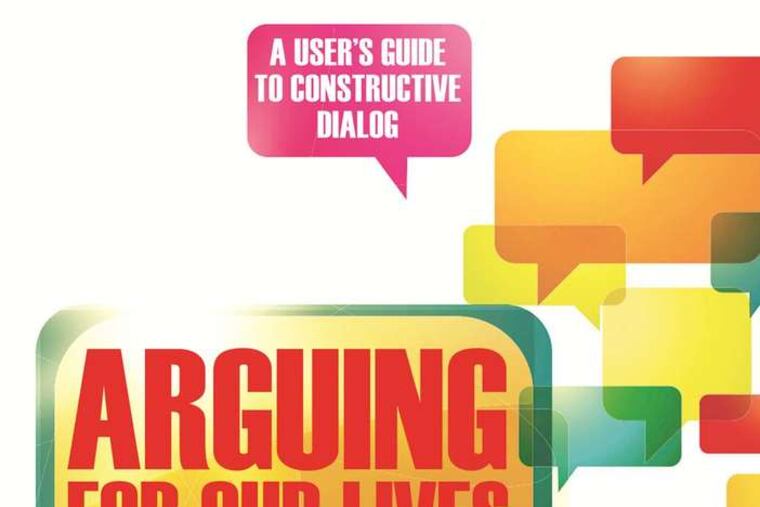'Arguing for Our Lives': A guide to saving democracy with intellect
'I just got a call from Matt Damon's agent," social critic and political activist Robert Jensen says in deadpan about his new book, Arguing for Our Lives: A User's Guide to Constructive Dialog.

'I just got a call from Matt Damon's agent," social critic and political activist Robert Jensen says in deadpan about his new book, Arguing for Our Lives: A User's Guide to Constructive Dialog.
"Matt wants to turn my book into a major Hollywood film."
How could you go wrong with a sexy title like that?
That's not to mention the content. A potent attack on the rabid, irrational saber-rattling that passes for political and social discourse today, Arguing for Our Lives is a cogent, closely argued, sober, yet passionate call for ordinary men and women to help save our democracy by reclaiming our intellect, by honing our powers of rational argumentation.
One imagines there could be a big role for Lindsay Lohan.
Jensen's joke about Matt Damon has a serious, and depressing, point.
There's little chance, he says, for his book to make the best-seller list in a media market so saturated with half-digested information and opinion that only the most salacious events make a ripple.
"Of course it's going to get lost in the shuffle," Jensen, 54, says in a phone interview.
So why bother? That question goes to the heart of the strange, admirable admixture of pessimism and hope that marks Jensen and his book.
A 21-year veteran of University of Texas Austin's School of Journalism, where he teaches media law, ethics, and politics, Jensen has spent a career writing about subjects most of us are taught to avoid in polite company - politics and religion.
An avowed leftist liberal, he has tackled racial politics (The Heart of Whiteness: Confronting Race, Racism and White Privilege), the role of religion in politics (All My Bones Shake: Seeking a Progressive Path to the Prophetic Voice), and the corrosive effects of pornography on culture (Getting Off: Pornography and the End of Masculinity).
Arguing for Our Lives is a departure of sorts. While it touches on specific issues, it's less a defense of a specific political or social stance than a handbook on how to arrive at and defend different positions.
An accessible, quick read at 136 pages, it reclaims an art that seems all but lost: intellectual inquiry and debate.
Such inquiry is our only defense, against "contemporary U.S. culture's confusion and cowardice," Jensen writes.
Cowardice? That's a pretty strong term.
Not when you consider how deeply we're in denial about two major crises facing us today: the environment and the erosion of democratic values by our economic system, Jensen says.
"Contemporary corporate capitalism undermines central components of democracy," he says. "Democracy is a system based on the principle of equality. Everyone should have an equal ability to effect the political system."
Capitalism, he adds, concentrates wealth, which buys a few at the top far greater access to power.
Worse, we continue to deplete resources without thinking of its long-term consequences, Jensen says. "Capitalism is a system based on unlimited growth . . . incompatible with dwindling resources."
We appear to be so frightened by these problems that we continue to deny they exist.
Consider the number of Americans who believe global warming is a hoax, Jensen says. (A recent poll puts the number at 37 percent.) Or consider the belief that market capitalism can flourish only in the total absence of regulation. As Jensen writes, even the nation's most powerful free-market booster, former Federal Reserve Chairman Alan Greenspan, has come to reject that view.
"I often joke that it may be the fate of human beings to believe they always think they live in the most important moment in history," Jensen says. "Even with that cautionary note, I believe this is the most important point in history. We are living . . . in crisis."
Is there no hope?
"I expect no innovation out of Washington" to help us through these crises, Jensen says. "But I am heartened by countless examples of good work on the local level. I think all the innovations . . . will come from outside the mainstream, or from local grassroots organizations."
But for that to happen, citizens need to reject shortcuts and embrace the hard, slow work of critical thinking.